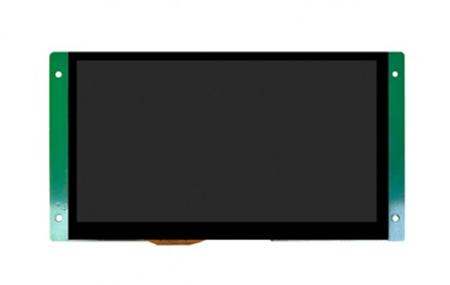What is a LCD screen on a camera?
Views: 1251 Update date: Nov 29,2023
An LCD (Liquid Crystal Display) screen on a camera is a flat-panel display that is commonly used to provide a live preview of the images or videos being captured by the camera. It serves as the camera's viewfinder and playback monitor, allowing users to compose shots, review captured images, and navigate through the camera's menu system.
Here are some key functions and features of an LCD screen on a camera:
Live View: The LCD screen enables live view functionality, allowing you to see in real-time what the camera sensor is capturing. This is particularly useful when framing shots from awkward angles or when shooting video.
Playback: After capturing images or videos, you can use the LCD screen to review and playback your media. This helps you assess the quality of your shots and decide whether to keep or delete them.
Menu Navigation: The camera's menu system is often accessed and navigated through the LCD screen. This is where you can adjust various settings and customize the camera's functions.
Touchscreen Functionality: Some cameras feature touchscreen LCDs, allowing users to interact with the camera by tapping and swiping on the screen. This can make menu navigation and setting adjustments more intuitive.
Information Display: The LCD screen often displays important shooting information, such as camera settings, battery level, exposure information, and more. This data helps photographers make informed decisions while shooting.
Focus and Composition Aids: Some advanced cameras provide focus peaking and grid overlays on the LCD screen, aiding in manual focus and composition.
Articulating Screens: Some cameras have articulating or tilting LCD screens that can be flipped or rotated. This feature is beneficial for shooting from high or low angles, as well as for taking selfies or vlogging.
The size, resolution, and features of LCD screens can vary among different camera models. High-end cameras may have larger, higher-resolution screens with advanced features, while budget-friendly cameras may have smaller, simpler displays.
Here are some key functions and features of an LCD screen on a camera:
Live View: The LCD screen enables live view functionality, allowing you to see in real-time what the camera sensor is capturing. This is particularly useful when framing shots from awkward angles or when shooting video.
Playback: After capturing images or videos, you can use the LCD screen to review and playback your media. This helps you assess the quality of your shots and decide whether to keep or delete them.
Menu Navigation: The camera's menu system is often accessed and navigated through the LCD screen. This is where you can adjust various settings and customize the camera's functions.
Touchscreen Functionality: Some cameras feature touchscreen LCDs, allowing users to interact with the camera by tapping and swiping on the screen. This can make menu navigation and setting adjustments more intuitive.
Information Display: The LCD screen often displays important shooting information, such as camera settings, battery level, exposure information, and more. This data helps photographers make informed decisions while shooting.
Focus and Composition Aids: Some advanced cameras provide focus peaking and grid overlays on the LCD screen, aiding in manual focus and composition.
Articulating Screens: Some cameras have articulating or tilting LCD screens that can be flipped or rotated. This feature is beneficial for shooting from high or low angles, as well as for taking selfies or vlogging.
The size, resolution, and features of LCD screens can vary among different camera models. High-end cameras may have larger, higher-resolution screens with advanced features, while budget-friendly cameras may have smaller, simpler displays.




